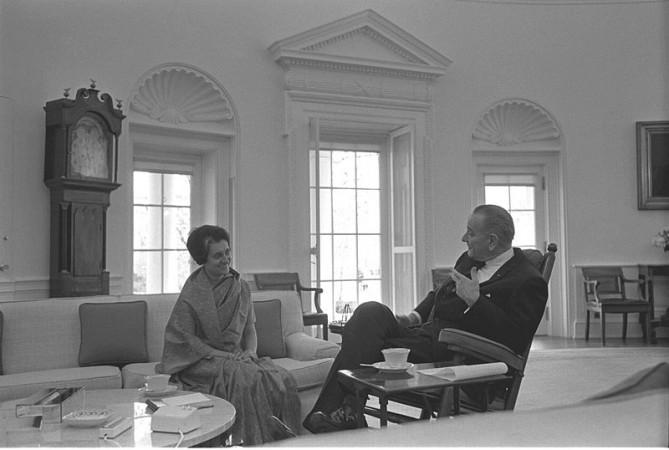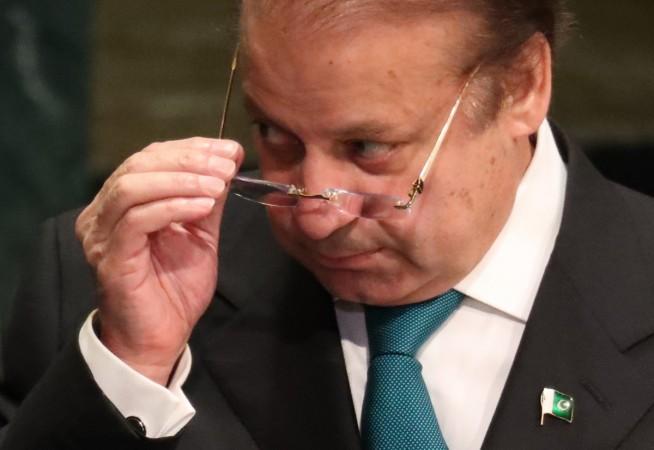On July 28, 2017, Pakistan's prime minister Nawaz Sharif was disqualified by the country's Supreme Court in connection to the Panama Papers affairs, marking a watershed moment in the history of its still fledgling democracy. It is still to be seen which way Pakistan's democracy goes from here: up towards a mature system where the political class acts with precision or down, towards chaos and eventual disappearance.
In 1975 June, Indira Gandhi was disqualified by a court
The Pakistanis, however, can find a historical parallel from not-so-friendly neighbour India. Forty-two years ago, in June 1975, a powerful prime minister in India was disqualified by the Allahabad High Court for electoral malpractices in the 1971 Lok Sabha elections and she was prevented from holding any elected posts. The ruling Congress was given 20 days time to find a replacement for Indira Gandhi. The moment was historic as we all know how like a cornered tigress, Indira Gandhi roared back and imposed the Emergency the very next day.
The court had overturned her conviction in November the same year and although the independence of Indian judiciary was hailed all across the democratic world, Indira Gandhi had ensured that power had not slipped out of her hand. Politically, it was the worst phase in the otherwise proud journey of the Indian democracy.

Post Emergency, Indira Gandhi was unchallenged. Accompanied by her ruthless younger son Sanjay, she had run a bulldozer over every other opponent – be it the Opposition leaders or the media. Indira was eventually punished by the electorate in 1977 when she lost the election and the Congress was out of power for the first time since Independence. The iron lady was, nevertheless, back in 1980 after the coalition that had replaced her fell to an internal squabble.
But in 1975 when she faced an opposition from the court, Indira Gandhi and her camp were apprehensive whether the united opposition led by leaders like Jayaprakash Narayan and Raj Narain and others would prove to be formidable enough to be defeated in the next elections. And hence, the retaliation.
Sharif, like Indira of her time, was the tallest leader of Pak at the time of disqualification
Pakistan has seen something similar today. Though Sharif was not the first PM to get disqualified by the court (premature fall of prime ministers is not new in Pakistan) but what brings his case closure to that of Indira in 1975 is that like the latter, the PML-N leader was the tallest his country had at the time of his ouster.
Could he also have done something like Indira?

In a developing democracy like Pakistan, it was near to impossible. Indira could eclipse democracy because of certain reasons. One, she and her party were the most formidable force of Indian democracy at the moment and it was virtually impossible to find an alternative platform of power then.
The Opposition had leaders of impact but they were dwarfed by Indira's personality cult. Secondly, since the legacy of Jawaharlal Nehru was still very much an influencing factor in Indian politics, being his daughter, Indira Gandhi had a natural acceptability among the Indian voters who were upset with her, but only temporarily because of her excesses.

In Pakistan, the civilian administration is yet not the most powerful institution of the country. The PML-N is not the Indian National Congress of the 1970s and Sharif was already fighting a serious anti-incumbency mood which was being fuelled by Imran Khan's Pakistan Tehreek-e-Insaf.
With several other forces holding grounds, like the military, extremists and the Opposition like Khan, Sharif did not really have the ammunition to turn the Pakistani democracy upside down to ensure his own stay in power. He thus departed without a fuss, like he had done twice in the late 20th century.
Sharif's departure will certainly disturb the stability that the people of Pakistan had sincerely hoped for while casting their ballots in the 2013 elections but the lack of a prospect of derailing the very democracy to hold on to democratically won power – something Indira had done in the mid 1970s – is a blessing in disguise for the Pakistani society. If it can see a smooth transition following the conviction of its most prominent political leader at the moment, then one would really feel encouraged about its future.














